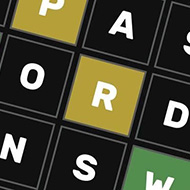Schedule 1 is an exciting game that blends strategy, time management, and decision-making in a way that few games do. As a player, you are tasked with organizing a complex schedule that includes multiple assignments, tasks, and activities. The objective is simple yet challenging: ensure that every task is completed on time and in the right order. The stakes rise as you progress, and you must adapt quickly to manage new types of tasks that are introduced. This game is ideal for players who enjoy puzzles, critical thinking, and multi-tasking challenges.
Game Features
Schedule 1 offers a variety of gameplay features that will keep you hooked for hours. These elements make the game both exciting and engaging, testing your abilities to prioritize, plan, and react under pressure:
- Time Management Challenges: One of the core mechanics of Schedule 1 is time management. Players must allocate specific amounts of time to different tasks, ensuring that deadlines are met. If tasks are delayed or missed, penalties are imposed, and the level can be failed. As the game progresses, the difficulty of managing time increases, making each level more intense and challenging.
- Level Progression: The game follows a level-based progression system. Each level introduces new sets of tasks, some of which are intertwined with others. You’ll need to complete one task to proceed to the next. This chain of task completion increases the complexity of each level, forcing you to adapt your strategy for each new challenge.
- Multiple Task Types: Not all tasks are the same. Some tasks require more time, while others may need specific resources or inputs to complete. The variety of tasks adds a layer of complexity, as you must decide how to allocate your time and resources efficiently.
- Dynamic Difficulty: The game adjusts its difficulty based on your progress. In the beginning, you may only face simple, straightforward tasks. As you advance, however, the complexity increases, requiring more precise planning and decision-making. Some levels might require you to manage several tasks at once or handle tasks that overlap in time.
Levels and Progression
Each level in Schedule 1 introduces more intricate and demanding challenges. At first, players may find the game straightforward, with only a few tasks to juggle. However, as you progress through the game, the levels become increasingly complex. Here’s what you can expect from the game’s progression:
- Basic Levels: In the early levels, the game starts with simple tasks that can be completed individually without much planning. These introductory levels help new players get a feel for the game mechanics, including task allocation and time management.
- Intermediate Levels: As you advance, the number of tasks increases, and the order in which tasks are completed becomes more important. You’ll also begin to deal with overlapping tasks that require multitasking and planning ahead.
- Advanced Levels: At higher levels, tasks may require specific resources, and managing several tasks at once becomes crucial. The time to complete each task is also reduced, making every second count. Success at this stage requires perfecting time management and strategy.
The level system is designed to keep players engaged, and each new challenge provides a fresh experience. Whether you’re organizing a team of employees, managing a series of appointments, or tackling multiple overlapping tasks, the game provides a variety of scenarios to test your time-management skills.
Tips for Success
Success in Schedule 1 doesn’t come easily. To truly excel, you’ll need to employ a range of strategies that involve prioritization, organization, and quick thinking. Here are some helpful tips to help you navigate the increasingly difficult levels:
- Prioritize Tasks: The key to succeeding in Schedule 1 is prioritization. Start by focusing on the most urgent and time-sensitive tasks. Completing high-priority tasks first ensures that you avoid penalties, especially when deadlines are tight.
- Stay Organized: A cluttered schedule can quickly lead to confusion. Keep your tasks well-organized and structured, and ensure that you know exactly what needs to be done and when. It’s important to plan ahead as much as possible.
- Keep an Eye on Deadlines: Each task has its own set of deadlines. Pay close attention to each one and ensure that you’re working toward meeting all deadlines simultaneously. Be mindful that delays in one task may affect others, so don’t lose track of any task in the process.
- Use Time Wisely: You have a limited amount of time to complete each task. Time management is the core mechanic in this game, so make sure you’re using every second wisely. Don’t rush, but don’t delay either – finding that balance is key to success.
Why Play Schedule 1?
Schedule 1 is perfect for anyone who enjoys games that require strategic planning, critical thinking, and quick decision-making. The game encourages you to use your brainpower to complete tasks, pushing your time management skills to their limits. It’s not just about doing tasks, but about doing them efficiently and in the right order.
Whether you’re a casual gamer or someone who enjoys more challenging, thought-provoking gameplay, Schedule 1 will provide hours of fun. The increasing difficulty ensures that the game remains engaging, and there’s always a new challenge waiting around the corner. If you love a game that makes you think and plan ahead, Schedule 1 is a must-try!

